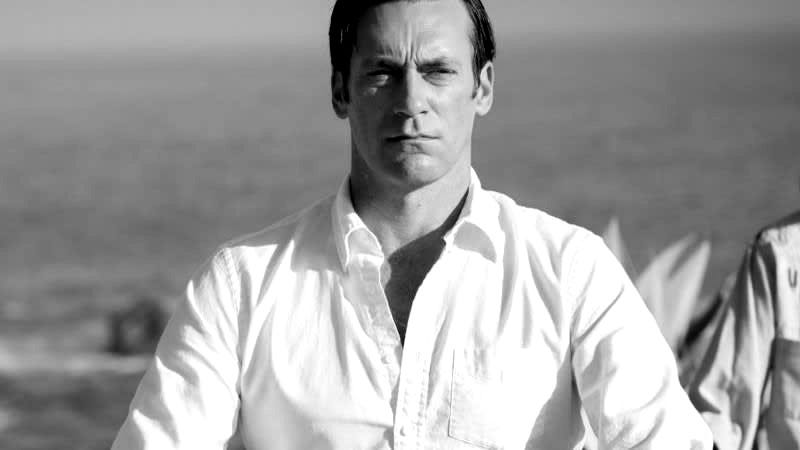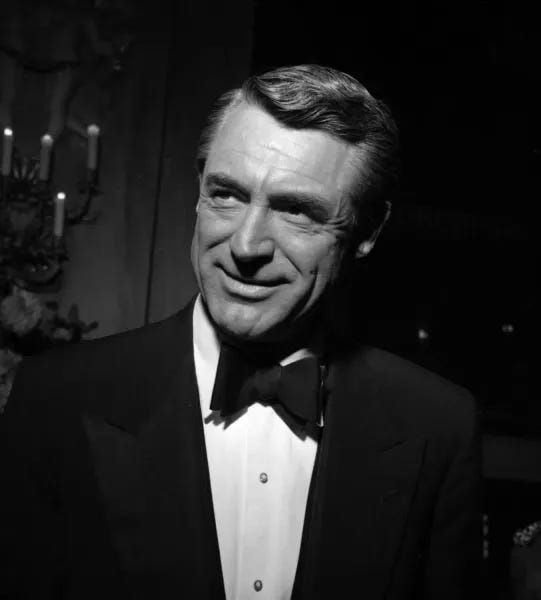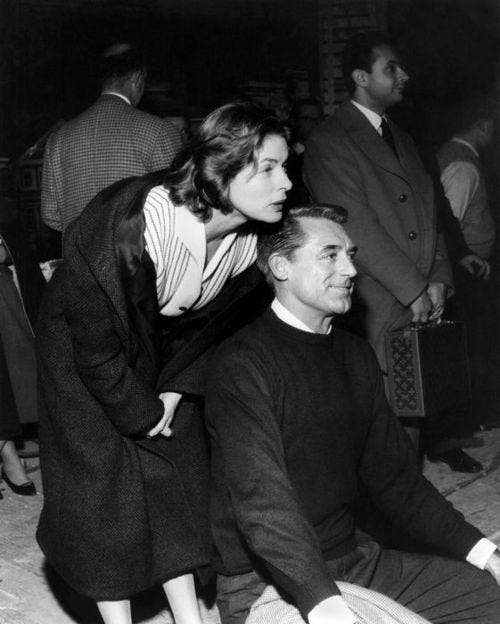What You’ve Been Lied to About Happiness
It’s simpler than it seems
What is Happiness?
On a surface level, it’s a universal desire that every human on earth hopes to obtain as much as they can—yet there’s a wide variation in how each person experiences it.
For some, it’s just hours of letting go of responsibility, consuming media that gratifies their mind until they fall asleep.
For others, it might be a big moment—an achievement from hours of hard work, a material acquisition that justifies their worth in the social hierarchy.
And for many, it could simply be a life well-lived.
When the term happiness becomes the topic of discussion, countless paradigms emerge to describe its true meaning and the pathway to achieve it.
(Mostly in the form of spiritual or religious involvement.)
Yet, on the other hand, most people in society associate happiness with a dopamine “surge”—the timestamp of finally getting or arriving.
“Happiness is the smell of a new car. It’s freedom from fear. It’s a billboard on the side of a road that screams with reassurance that whatever you’re doing is OK.” — Don Draper
This quote from the iconic fictional character has been—and still is—the frame through which the masses perceive happiness.
Which leads to my argument:
The idea of “success,” the moment of arrival, the reassurance from external factors that you are OK—these are lies. They are not happiness, but fleeting moments wrapped in the name of pleasure.
Because happiness, when distilled from every “thought framework,” is simply a state of mind that gives you peace from within.
The Meaning of Happiness — Synthesized from Multiple Perspectives
There are countless lenses through which we can define happiness—religious, spiritual, biological, psychological, philosophical.
To make this empirically clear, let me exemplify each lens and its approach to happiness.
1. Biology (Neuroscience + Evolutionary View)
Happiness here is the brain’s signaling system, indicating alignment with survival and flourishing:
Dopamine: pursuit of reward (anticipation, novelty)
Serotonin: stability of social belonging and self-worth
Oxytocin: bonding of love, trust, connection
Endorphins: relief of pain
From this lens, happiness is not “truth”—it’s a feedback mechanism, designed by evolution to nudge us toward behaviors that keep us alive, reproducing, and socially connected.
So to say: biology optimizes for survival, not meaning. And that’s why most people end up chasing dopamine (pleasure) and collapsing into emptiness.
2. Psychology (Mind + Behavior)
Here, happiness is seen as subjective well-being: a combination of pleasure (hedonic) and meaning/purpose (eudaimonic).
Hedonic: “I feel good right now.”
Eudaimonic: “My life feels meaningful and coherent.”
Modern psychology interprets hedonic happiness as fragile, but eudaimonic happiness—aligned with universal values, personal growth, and greater contribution to society—creates resilience and deeper peace.
3. Religion
A common thread: most religions don’t treat happiness as an end. It’s a side effect of righteousness, obedience, or spiritual alignment.
Christianity: Not earthly pleasure, but the peace of communion with God. “The peace that surpasses understanding.”
Buddhism: Freedom from craving and attachment; nirvana—liberation where suffering ends.
Islam: Happiness (sa‘adah) as harmony with divine order, both in this world and the eternal one.
Hinduism: Ananda (bliss), experienced when the soul realizes unity with Brahman (ultimate reality).
Religious perspectives anchor happiness not in temporary states, but in alignment with something greater than the self.
4. Spiritual (Non-religious, Mystical)
Here, happiness is inner stillness—a state of consciousness where the mind stops chasing and resists nothing.
It’s not external achievement, but internal awakening.
Many spiritual teachers say happiness is our “natural state,” obscured only by layers of fear, ego, and conditioning.
As Eckhart Tolle famously said:
“Joy is uncaused and arises from within as the joy of Being. It is your natural state, not something that you need to work hard for or struggle to attain.”
5. Philosophy
From countless schools of thought, here are a few perspectives:
Aristotle: Happiness (eudaimonia) is flourishing, achieved by living in virtue and actualizing potential.
Epicurus: Happiness is pleasure—but not excess. Found in moderation, friendship, freedom, peace of mind.
Stoics: Happiness is living in accordance with nature and reason, indifferent to external outcomes, rooted in virtue.
Existentialists (Nietzsche, Sartre, Camus): Happiness is the courage to live authentically, embrace the absurd, and create meaning despite the void.
Now, ladies and gentlemen—across these schools of thought, when you strip away cultural language, here’s what they each boil down to:
Biology: You feel good when you’re surviving and connecting.
Psychology: You thrive when you align pleasure with meaning.
Religion: You find peace when you align with the divine order.
Spirituality: You awaken when you align with your true self.
Philosophy: You flourish when you align with reason, virtue, authenticity.
The convergence?
Happiness = Alignment.
Whether you call it survival, virtue, truth, God, or inner peace—it’s the same principle: when your inner being and outer living are not in contradiction, you feel at peace.
And that peace is what humans label as happiness.
The Alignment of Internal and External
Ladies and gentlemen, I’d like you to imagine this visual with me for a moment:
You wake up—not with an alarm, but with pure intention. You spend every single moment knowing exactly what you’ll do and exactly why you’ll do it. At the end of the day, you’ve done those exact things in the very best way you intended, without distraction—knowing there’s nothing more to add. When night arrives, you lie down in bed, close your eyes, and end the day.
Now, my question to you is: How does it feel?
Will there be any frustration, any regret?
Will there be dissatisfaction with yourself?
Or will it be a peaceful feeling—the sense that nothing is left unresolved, that you can fully enjoy closing your eyes and falling asleep at the end of the day?
That, ladies and gentlemen, is happiness: the full alignment of internal being and outer living at its finest.
The tragedy, as you might guess, is that most people do not actually “want” happiness—they want pleasure: fleeting hedonistic consumption that stimulates their senses rather than long-term, delayed fulfillment.
Of course, I won’t deny that the modern world and its external distractions play a role in this phenomenon. But in the end, the individual is always the final decision-maker: whether he or she will allow those distractions and fleeting pleasures to drag them into the endless spiral of chasing, or not.
The tide begins to turn only when you decide to take control of your own narrative—to sit quietly and peel back, layer by layer, the person you don’t want to become, the life you don’t want to live—until you find the north star, the anchor of your being that calls you forward.
In other words: full awareness of your internal mind.
(I’ve already covered the process of doing so earlier in this essay.)
However, the next great obstacle is aligning that calling with external output—your daily actions.
And I confess: even to this day, I still struggle to fully embody this ideal equation. Many times, I let distractions creep in and find myself drifting into hours of limbo.
(Which I can tell you: it’s like a burning curse, haunting you consciously and unconsciously, as long as you remain in that loop.)
But there is an antidote to this misalignment: the combination of “discomfort of consequence” and “the why behind the inner calling.”
Discomfort of consequence is the burden—the haunting weight of knowing what I’ll waste, or who I’ll become, if I continue to spiral into distraction.
The why behind the inner calling is the divine drive: the deeper reason why what I intend to do must happen—why it matters beyond my own self-interest.
Every single time I call upon both the discomfort and the why, my external output comes into full alignment with my internal being. And at the end of such a day, I find myself in a sacred state of mind we call happiness.
When you begin to experience this consistently, day after day, something magical happens.
A magic I call: true elegance in life.
Everyday Elegance = The Simplicity of Happiness
While there are plenty of definitions (and many used merely to describe quiet luxury materials)…
Elegance—true elegance—is not about possessions, or even style.
It is about simplicity in alignment.
It’s when life stops being a tangle of contradictions and becomes a clean, coherent expression of who you are.
Ladies and gentlemen, think about it:
A life chasing pleasure is cluttered. Always reaching, consuming, restless.
A life in fear is rigid. Always defending, hiding, pretending.
A life in alignment is elegant. Every action reflects the essence. Nothing wasted, nothing forced.
That’s elegance: clarity embodied.
When you live in alignment, there’s no need for excess, no hunger for constant reassurance. Even small gestures, simple choices, quiet moments—they carry weight, depth, and beauty. That kind of life radiates elegance because it is whole, unbroken, and uncontradicted.
So yes: happiness, as we’ve defined it, is inseparable from true elegance.
Happiness = internal peace through alignment.
Elegance = external expression of that peace and alignment.
One is the state. The other is its form.
Together, they create a life that feels both right and beautiful—without effort.
Think about Cary Grant’s presence, for instance.
The reason behind his unmatchable elegance—even among Hollywood icons of his era—wasn’t just his looks or his suits.
His elegance came from something deeper:
He didn’t push. He didn’t prove.
His movements, his speech, his manner all carried ease—as if nothing was out of place.
He was, in essence, a man at peace with himself—or at least skilled enough at self-integration to project that peace.
That’s exactly the point: when you are aligned inside, the outside naturally becomes elegant. There’s no strain, no performance.
As he once admitted:
“Everyone wants to be Cary Grant. Even I want to be Cary Grant.”
He created an ideal, then lived into it.
That, too, is alignment: crafting a vision of who you wish to be, then embodying it so fully that the gap between self and role disappears.
When you are no longer trying to prove, impress, or disguise, your energy isn’t wasted. You move lightly. You speak cleanly. You exist without friction.
That’s why Cary Grant radiated presence in a room.
People weren’t drawn to his looks alone—they were magnetized by the stability he projected. Humans unconsciously sense alignment: someone congruent inside and out makes others feel safe, clear, even elevated.
It’s like tuning into a well-balanced frequency.
This connects directly to our thread:
Happiness (peace through alignment) is the inner state.
Elegance (ease, coherence, flow) is the outer form.
Together, they create presence—what Grant carried, what spiritual teachers emanate, what we recognize instantly in those rare people who seem whole.
In the end, it’s not about wealth, fame, or polish. A monk in rags can have the same elegance as Cary Grant in a tuxedo—because it comes from the same core: ease within oneself, reflected outward without distortion.
With that said, ladies and gentlemen—the moment you kill the hunger for validation and approval, you stop outsourcing your worth to the world.
And how do you kill it?
Not by force or denial (that only creates repression), but by living in such complete alignment that your very existence becomes its own validation.
Think of it like this:
If your inner being says one thing, but your outer life performs another—you’ll need others to reassure you, because deep down you know you’re lying.
But if your inner being and your outer actions are fused—no fracture, no mask—you don’t need approval, because there’s no hidden insecurity to soothe.
That’s when the hunger dies. And with it, the compulsive chase for validation.
What replaces it?
Peace. Presence. And, as we’ve been saying: Happiness.
This is why the happiest and most elegant people aren’t those with the most applause—they’re the ones who could walk away from applause tomorrow and remain unchanged. They are already enough, by their own measure.
So I leave you with this eternal equation of humanity:
Happiness = Alignment. Alignment = Freedom from validation. Freedom = Ease. Ease = Elegance.
And with that, I hope you find your own happiness in this current society.







